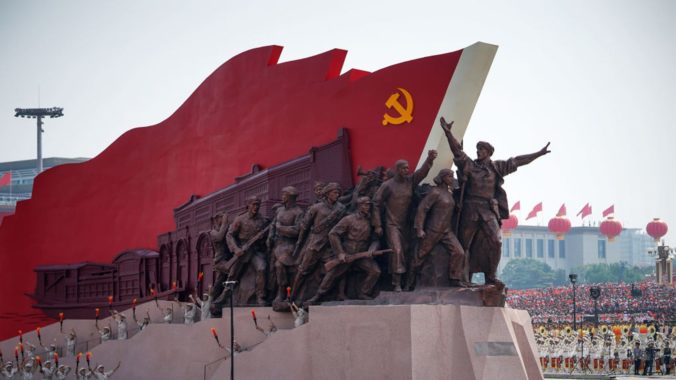On an episode of Revolutionary Left Radio, Alyson and Breht review in detail the text of Marx’s 18th Brumaire.
Along the way, they point to one of Marx’s most famous quotes: “Hegel remarks somewhere that all great world-historic facts and personages appear, so to speak, twice. He forgot to add: the first time as tragedy, the second time as farce.”
The quote references the transition in French politics from Napoleon Bonaparte to Louis Bonaparte. But we need not concern ourselves with the details here. Suffice it to say that Napoleon stood in for tragedy – the Napoleonic Wars killed millions – and Louis for farce, as his version of the French Empire paled in comparison to the first.
I find something like this on parts of the sectarian left. Some leftists – some from democratic centralism, some Marxism-Leninism, et al. – look to the historical work of leftist figures for lessons they rigidly apply to the modern world. It’s as though Lenin (or Kautsky, or Engels) speak directly to our time, giving us the secret blueprint for how to finally build the U.S. left into a force ready to take power.
Why Democratic Centralism Doesn’t Work Now
At a broad level, we all know why Leninist democratic centralism doesn’t work in the U.S. today.
Lenin wrote very practically. He was building a revolution in a specific time and place – an autocratic empire where the Czar crushed even the tiniest hint at democracy or popular power. I’ve covered some of this in a couple of posts.
It’s not a shocker, then, that Lenin found democratic centralism appealing. Nor should it shock us that he argued against formal outlets or tendencies for views contrary to those of the elected leaders of the party.
One could argue that Lenin’s Russia required ideological, strategic, and even tactical unity. Without that, party members could come under immediate material danger. I still doubt the correctness of the argument, but one can defend it.
We can tell a similar story about vanguardism. In Lenin’s day, rural peasants made up the vast majority of the Russian people. The country hadn’t yet come anywhere close to full capitalism, seeing only the very start of industrialization. It had, at best, a tiny and poorly educated working class.
Under such conditions, vanguardism was almost inevitable, assuming the goal was to build a revolutionary socialist movement loosely consistent with a Marxist view of history. They needed an educated political class to move the people through those stages. They needed more education, solidarity, and so on, that ‘normally’ occurs during the (skipped) capitalist stage.
Readers should note, above all, that none of this resembles the U.S. in 2025. Pretty much at all. U.S. workers are far more educated. And our economy has long moved into and through the industrial stage. For that matter, many of our hottest labor battles involve workers with a college education – e.g., teachers and nurses.
It’s just wild to suggest that you can directly apply Leninist theory to this situation.
Don’t Throw Away History
To be clear, I’m not arguing we should throw away our leftist history. We should still read Lenin, et al., and learn our lessons. But we need to do so carefully. We need to interpret those lessons through the lens of our real lives in the 21st century.
Lenin expanded Marx’s work on the history of capitalism in novel ways. He taught us some of the ways the capitalist system works through its inherent problems and tensions.
Plus, he taught us some of the ways we might (or might not) adapt to major waves of political repression, should they occur. We shouldn’t advertise sorts of actions – specific protest tactics, et al. – in fora where police might read them. And we might need to limit how openly members debate certain things.
But let’s not make this entirely about Lenin. We can find similarities in how people apply figures like Kautsky or Engels. Some do so rigidly, without looking at the stark differences between the U.S. in 2024 and Germany in the late 19th and early 20th centuries. The broad historical scope of Marx’s work, by contrast, allows us to apply him a bit more directly.
Final Thoughts
People like Lenin and Mao certainly appeared as tragedy. Their authoritarian brands of socialism – however justified certain aspects of those regimes may have been in their time and place – contributed to a ton of murder, death, and devastation. This holds true even after we account for the fact that capitalist responses to the Russian and Chinese Revolutions were responsible for many of the problems.
But in the contemporary left, these notions can only appear as farce. There will never be a serious Leninist or Maoist revolution in the U.S. And certainly not one that looks exactly like the description in Lenin or Mao’s writings.
Finally, I should note that I intend no disrespect to Alyson and Breht’s excellent discussion of the 18th Brumaire.
Readers should give it a listen!
